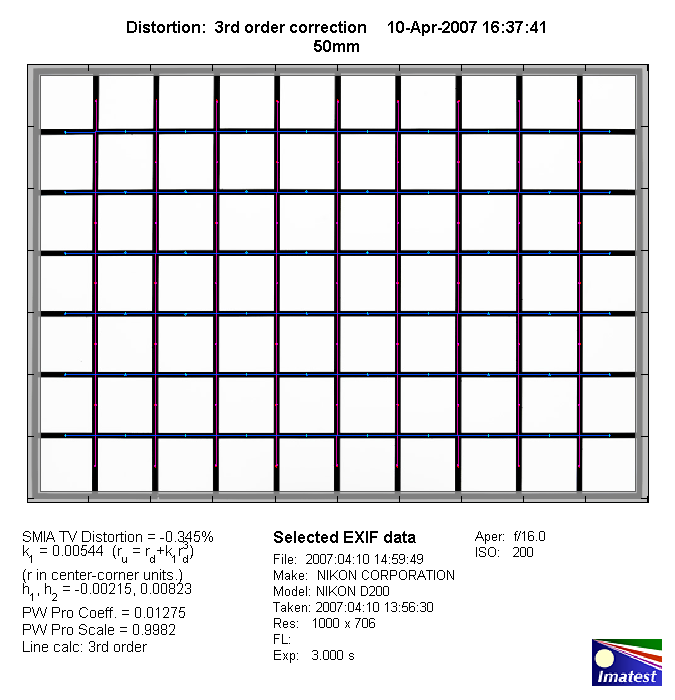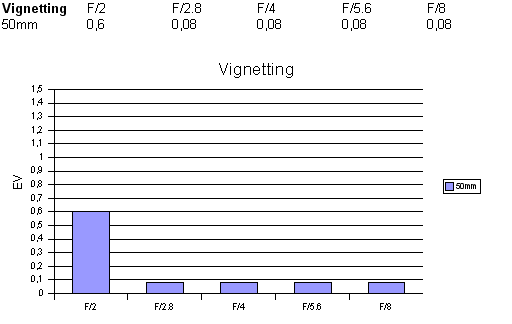|
Zeiss Makro-Planar T* 50mm f/2 ZF - Review / Test Report - Analysis |
|
Lens Reviews -
Nikon / Nikkor (APS-C)
|
|
Page 2 of 3
Distortion
The Makro-Planar produces only a slight degree (~0.35%) of barrel distortion.

The chart above has a real-world size of about 120x80cm.
Vignetting
The Zeiss lens is a full frame lens thus enjoying a sweet spot advantage
on the D200 where it shows a relatively moderate vignetting of 0.6EV at
wide-open aperture. Starting at f/2.8 the problem is absolutely negligible
under field conditions.

MTF (resolution)
Macro lenses tend to be stellar performers and the Zeiss is no exception
to the rule. At wide-open aperture the lens is already extremely sharp in the
center whereas the borders are a little softer but still in very good territories.
From f/2.8 to f/8 the edge-to-edge resolution is superb with a peak at f/5.6.
Beyond f/8 diffraction is the limiting factor so even Zeiss cannot fool
physics.
Compared to the Micro-Nikkor AF 60mm f/2.8D the Zeiss is quite a bit better
at comparable apertures till f/5.6 whereas the Nikkor has an advantage at very
small apertures. Due to diffraction neither is really good at f/22 or f/32
though. Nonetheless both lenses are outstanding in terms of resolution.
Please note that the test was performed at a distance of around 3m so it is
not a macro test. Dedicated macro tests are not possible at this stage (not
without a NASA budget anyway).
Please note that the MTF results are not directly comparable across the different systems!
Below is a simplified summary of the formal findings. The chart shows line widths per picture height (LW/PH) which can be taken as a measure for sharpness.
If you want to know more about the MTF50 figures you may check out the corresponding Imatest Explanations
Chromatic Aberrations (CAs)
Many of the recently tested Zeiss lenses performed good but not stellar in terms of
lateral chromatic aberrations (color shadows at harsh contrast transitions). The
Makro-Planar is very different in this respect with next to non-existent CAs throughout
the tested aperture range. That's a truly outstanding characteristic here!

|